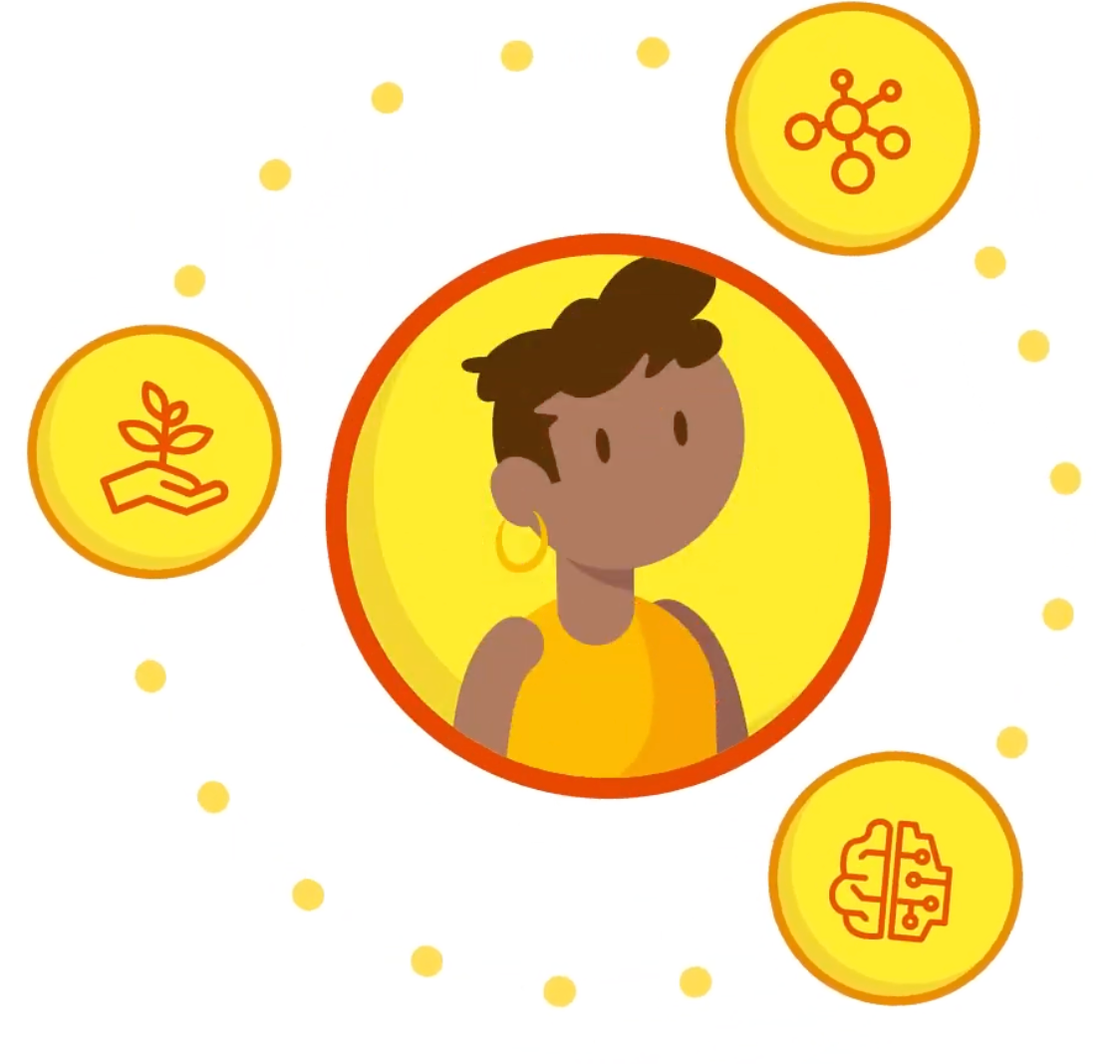Why your organization needs hybrid skills
by Krista Henry

Technology, the engine of growth in the workplace, is speeding ahead at a pace never seen before. Successful organizations hire people with the right skills to keep the company on track.
Recruiters continue to adjust their hiring strategies for remote workplaces and rapid digital transformation. Organizations upskill and reskill their current workforce to tackle these changes. The Future of Jobs Report 2020, estimates that 40 per cent of workers will require reskilling of at least six months. Companies adapt by recruiting young talent with the hybrid skills they now need.
Hybrid skills are a combination of both technical and human-centered skills. Organizations need digitally-savvy talent with human-centered skills to handle culturally diverse customers and peers. It’s estimated that by 2025, 85 million jobs may be displaced by a shift in the division of labour between humans and machines. As many as 97 million new roles may emerge that are more adapted to a division of labour between humans, machines and algorithms.
Even with tech advances, it’s humans that drive successful digitization and modernization programs. Technology is only as good as the people who use it.
What areas do employers need hybrid skills for?
Research indicates that around one in four jobs need hybrid skills. About one in eight positions has a high degree of hybridization. These skills are most needed in sectors that require empathy, creativity and communication such as:
- Sales and customer service
- Evolving compliance and regulatory systems
- Emerging digital technologies
- Design and development
- Data and analytics
Talent to tackle transformation
Arts students are equipped with the skills and abilities required to be well-rounded candidates. They have a broad worldview when compared to students who specialize in a particular field or discipline. Research shows that one third of all Fortune 500 CEOs hold arts degrees, and 55 per cent of world leaders hold degrees in the humanities.
We list some of the top skills rising in prominence leading up to 2025:

Studies show that employers around the globe seek communication skills more than any other skill. Strong communication is essential to forming relationships and sharing knowledge. Communicators translates complex, technical ideas into meaningful information.

Advocating for the use of new tech and incorporating it into daily work helps individuals and organizations stay one step ahead. Talent needs to grasp new technologies with ease and apply it to achieve better results.

Solving problems thoughtfully and creatively in a way that considers multiple perspectives and potential implications. By engaging in analytical conversations people can transform organizations and communities.

Refers to the ability to change actions, course or approach to doing things in order to suit a new situation showed businesses that they need talent with the ability to adjust internal systems easily to conform to other external factors.

The future of work will require individuals and organizations to identify data to form meaningful conclusions. Organizations expect talent to gather and analyze data from multiple sources to draw easily relatable conclusions.

As workplaces become more diverse, organizations navigate differences to connect with communities. The ability to engage with human empathy and integrity is in high demand.
In an uncertain workforce, knowing how to identify, recruit and retain candidates with the right skills is more important than ever to future-proof your company.
Learn more: Get insights from talent managers on how co-op students impacts your talent pipeline.
To get a direct line to future ready talent, consider hiring Waterloo students!